Robert Louis Stevenson eloquently said that, “Sooner or later, everyone sits down to a banquet of consequences.” Sadly, sometimes people don’t see that until far, far later, sometimes when it’s too late. Herein lies the argument, at least about some people, regarding addiction as a disease vs. a choice. Some people begin drinking – their very first episode of drinking – as alcoholic drinkers. That first drink turns into that first episode of blind drunkenness which turns into being blackout drunk. And, too often, for these types of drinkers, the rest of their lives are spent chasing that first high, sometimes trying harder and harder drugs to reach it.
For others, though, that first drink or that first toke is just a bad choice, not an immediate descent into addiction. This blog is for them.
One moment can change your life.
We tell young people not to drink alcohol or use other drugs, but why?
Certainly every person who drinks while underage will not end up suffering from alcoholism, but we do know for a FACT that those who start drinking by the age of 15 are six times more likely to develop alcohol dependence or abuse than those who begin drinking at or after 21 years of age. (Substance Abuse and Mental Health Services Administration Center for Behavioral Health Statistics and Quality; 2015 National Survey on Drug Use and Health)
And marijuana is no better for a young, developing brain. We know for a FACT that those under the age of 25, the age at which the brain is fully formed, face addiction, cognitive decline, poor attention and memory, and decreased IQ if they use marijuana regularly…even only once per week. (American Psychological Association, 2014)
So how do we make sure that one single moment doesn’t change our lives for the worse? We plan ahead.
Here are four ways to help ensure that decisions will be made well:
First, never drive then drink. Yup…that’s the correct order: never drive then drink. People never think they will drink and drive. The government and even beer companies have done a great job getting the message out that drinking and driving are a bad combination. EVERYBODY knows that. So why do so many people continue to do so? It’s not because they don’t know; it’s because alcohol acts on the part of our brains that makes decisions. And alcohol causes those decisions to not be good ones. It’s just how it works. So never give your brain the opportunity to make that decision once you’ve added alcohol. Never drive then drink. Instead, if you plan to drink, make other arrangements to get where you’re going in the first place. Then your alcohol-addled brain won’t convince you that you’re fine to drive.
Second, have a safety plan or an escape plan. Generally, we know when we’re headed for trouble or at least when trouble may rear its ugly head. Follow your gut and get out, but be sure that you know how to get out before you get in. Make your own travel arrangements so that you’re not relying on someone who may not have the same outlook as you do. That way, you can decide when to leave. And, if, for whatever reason leaving on your own isn’t an option, be sure that you’ve arranged ahead of time someone to call to come get you should the need arise.
Third, this is especially helpful for young people, but it also works for anyone who feels peer pressure to use substances. Talk about how to keep safe. Use the X-plan as described here or come up with another text as an exit route. Do you have a pet? It’s not suspicious for a person to be anxious about a sick dog, so a text about how Sam the dog is doing, for example, can be your cue that someone needs rescuing. A follow up phone call saying the dog took a turn for the worse is a great escape strategy.
Finally, just follow your gut. If something doesn’t feel right, it’s not. Gut feelings are real things – real neurons are providing us real messages. Women have to be more conscious of gut feelings because we are more vulnerable to others’ physical strength and speed. Still, we ALL have gut feelings that we should be in tune to. Too often we ignore our gut – because we feel silly thinking that our gut is right over our rational thinking, because we feel bad about what we’re thinking about others, because we aren’t sure what that feeling is. But gut feelings are important to our well-being. Pay attention to them.
Planning ahead may seem inconvenient, but it certainly beats the alternative. And it may be uncomfortable to discuss your rescue plan, but remember that uncomfortable conversations save lives.



